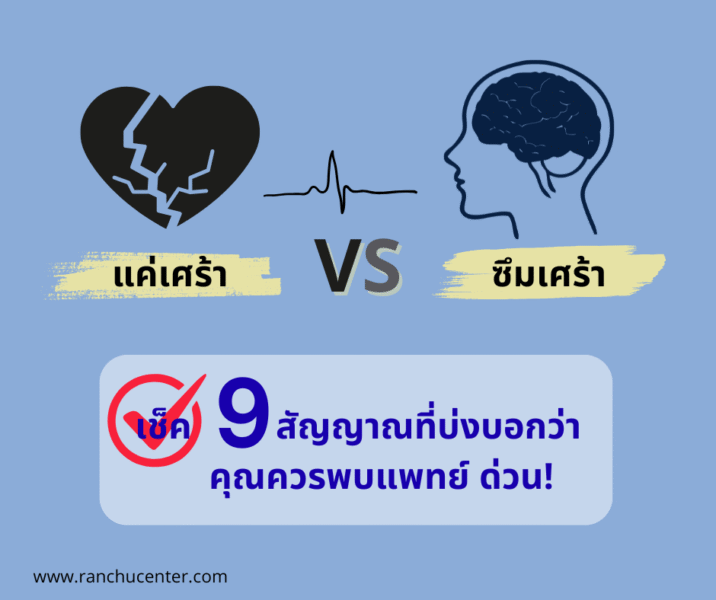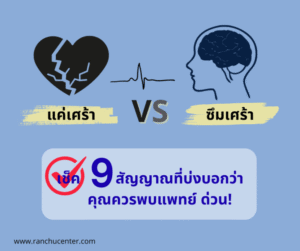Types of Therapy: Understanding Your Mental Health Options
เวลาอ่านโดยประมาณ: 15 นาที
Key Takeaways
- Understanding different types of therapy is essential for addressing mental health challenges.
- Individual, group, family, and couples therapy each offer unique benefits.
- Choosing the right therapy can significantly impact personal well-being.
- Counseling services complement therapy and focus on specific challenges.
- Effective psychological therapies include CBT, DBT, psychodynamic and humanistic therapies.
Table of contents
- Overview of Types of Therapy
- Individual Therapy
- Group Therapy
- Family Therapy
- Couples Therapy
- In-Depth Look at Counseling Services
- Definition of Counseling Services
- Differentiating Counseling Services from Therapy
- Types of Counseling Services Available
- Psychology Therapy Options
- Cognitive Behavioral Therapy (CBT)
- Dialectical Behavior Therapy (DBT)
- Psychodynamic Therapy
- Humanistic Therapy
- Effectiveness of Psychology Therapy Options
- Therapy for Specific Issues
- Understanding Depression
- Therapeutic Approaches for Treating Depression
- Success Rates of Different Therapies for Depression
- Counseling for Relationship Issues
- Types of Counseling for Relationship Issues
- Tools and Methods in Relationship Counseling
- Real-Life Examples and Benefits
- Call to Action and Internal Links
- สรุป
When it comes to mental health, understanding the various types of therapy available can be essential for effectively addressing mental, emotional, and psychological challenges. Therapies are various methods and techniques employed by mental health professionals to help individuals and groups navigate their unique experiences and issues.
There are various therapy options and counseling services available that work differently and may suit diverse needs or preferences. Whether you are dealing with anxiety, relationship issues, or emotional distress, knowing how to compare types of therapy can help you find the most suitable approach for your situation.
The purpose of this post is to guide you in understanding and comparing various types of therapy and counseling services. By the end of this piece, you should be better equipped to make decisions about your mental health care.
Overview of Types of Therapy
Understanding the main types of therapy can give you insight into what may work best for your personal situation. Here are some principal categories:
Individual Therapy
Individual therapy focuses on one-on-one sessions between a therapist and a client. It allows individuals to address personal issues and mental health concerns in a supportive environment.
– Focus: Concentrates on personal challenges such as anxiety, depression, or trauma.
– Objectives: Develop coping mechanisms, gain insight, and resolve personal conflicts.
Examples of Issues Addressed:
– Stress and Anxiety
– Low Self-Esteem
– Trauma Recovery
Group Therapy
Group therapy involves multiple participants being guided by a therapist. Participants share experiences, gain support from one another, and learn from each other’s insights.
– Focus: Emphasizes shared experiences and social support.
– Objectives: Foster community, reduce feelings of isolation, and learn new coping strategies.
Examples of Issues Addressed:
– Substance Abuse
– Grief Support
– Social Anxiety
Family Therapy
Family therapy brings family members together to address issues affecting the family unit. The therapist aims to improve communication and resolve conflicts.
– Focus: Centered around family dynamics and relationships.
– Objectives: Enhance communication, identify and address conflicts, and strengthen family bonds.
Examples of Issues Addressed:
– Parenting Challenges
– Communication Breakdowns
– Divorce and Separation
Couples Therapy
Couples therapy targets couples who face challenges within their relationship. It helps partners develop stronger communication and resolution skills.
– Focus: Relationship dynamics and conflict resolution.
– Objectives: Improve understanding and enhance emotional intimacy.
Examples of Issues Addressed:
– Communication Problems
– Infidelity
– Financial Stress
By understanding these categories of therapy, you can determine which approach might best suit your needs.
In-Depth Look at Counseling Services
Counseling services comprise professional guidance on various issues, including personal, social, educational, and mental health matters.
Definition of Counseling Services
Counseling services offer a structured environment to discuss challenges and receive expert advice tailored to individual needs.
Differentiating Counseling Services from Therapy
While both counseling and therapy aim to improve mental health, they differ in focus:
– Counseling often deals with specific challenges (e.g., career, academic stress) and may not explore underlying emotional issues deeply.
– Therapy dives deeper into emotional problems, seeking to uncover the root causes of issues.
Types of Counseling Services Available
Some available counseling services include:
– Career Counseling: Guidance on professional goals and work-life balance.
– Academic Counseling: Support for educational decisions and challenges.
– Mental Health Counseling: Focused support for anxiety, depression, and other mental health issues.
Utilizing qualified professionals in these areas is vital for effective support and achieving positive outcomes.
Psychology Therapy Options
Psychology presents various therapy options that cater to different psychological challenges and promote mental well-being.
Cognitive Behavioral Therapy (CBT)
CBT focuses on identifying negative thought patterns and behaviors to encourage positive behavioral changes.
– Key Features: Goal-oriented and time-limited.
– Best For: Anxiety, depression, phobias.
Dialectical Behavior Therapy (DBT)
DBT is a specialized form of CBT that incorporates skills training in emotion regulation and interpersonal effectiveness.
– Key Features: Combines individual therapy with group skills training.
– Best For: Borderline personality disorder, emotional dysregulation.
Psychodynamic Therapy
This approach explores unconscious drives and conflicts that influence behavior.
– Key Features: Emphasizes the influence of past experiences on current behavior.
– Best For: Deep-rooted emotional problems and traumatic memories.
Humanistic Therapy
Humanistic therapy emphasizes personal growth and self-actualization through client-centered approaches.
– Key Features: Non-directive and empathetic.
– Best For: Enhancing self-esteem and personal development.
Effectiveness of Psychology Therapy Options
Research indicates that various psychology therapy options are effective for different psychological issues. For instance:
– Cognitive Behavioral Therapy (CBT) has been identified as particularly effective in managing anxiety and depressive disorders.
– DBT has shown promise in treating emotional regulation difficulties, especially in cases of borderline personality disorder.
For more comprehensive data on the effectiveness of these therapies, you can refer to studies available on the NIMH.
Source:NIMH
Therapy for Specific Issues
One of the common issues many individuals face today is depression. Let’s explore this more deeply.
Understanding Depression
Depression is a mental health condition characterized by persistent feelings of sadness, loss of interest, and various physical symptoms.
– Symptoms:
– Persistent sadness or low mood
– Loss of interest in daily activities
– Changes in appetite and sleep patterns
Understanding therapy for depression is crucial as it defines the path to recovery.
Therapeutic Approaches for Treating Depression
Different therapeutic approaches can be employed in treating depression. These include:
– Cognitive Behavioral Therapy (CBT): Focuses on reshaping negative thought patterns.
– Medication: Sometimes combined with therapy for enhanced effectiveness.
– Interpersonal Therapy (IPT): Aims at improving relationships and social functioning.
Success Rates of Different Therapies for Depression
Several studies have shown promising success rates for different methods of treating depression:
– Research indicates that CBT can reduce symptoms effectively in many individuals.
– IPT has similarly shown restorative effects by improving personal relationships.
For detailed statistics, consult the findings available on the APA.
Source:APA
Counseling for Relationship Issues
Addressing relational problems is another critical area of therapy. Various types of counseling can assist couples and families in navigating these issues.
Types of Counseling for Relationship Issues
Counseling for relationship issues may include:
– Couples Therapy: Focuses on skills for improving communication and relationship satisfaction.
– Family Therapy: Works to address issues affecting family dynamics.
Tools and Methods in Relationship Counseling
Helpful methods in counseling for relationship problems include:
– Communication Skills Training: Enhances how partners express needs and concerns.
– Conflict Resolution Strategies: Teaches how to effectively handle disagreements.
Real-Life Examples and Benefits
Real-life case studies often illustrate the benefits of relationship counseling.
– For instance, a couple may learn to communicate better, thereby reducing misunderstandings and conflicts.
– Families may see improved harmony, enhancing relationships and emotional health.
By seeking counseling for relationship issues, individuals and families can experience transformative changes that enhance their lives.
Call to Action and Internal Links
We invite you to share your thoughts on your therapy experiences or ask questions in the comments! Engaging with the community can provide additional insight and support.
Consulting with mental health professionals can equip you with tailored advice about the best therapy options that meet your individual needs. Your mental health deserves the attention and care it deserves.
For more on how to compare types of therapy, check this post: Types of Therapy: A Comprehensive Guide to Mental Health Support.
Interested in understanding counseling for relationship issues? Read more here: The Power of Relationship Counseling: Transforming Connections.
If you want to explore psychology therapy options, visit this link: Understanding Anxiety Therapy: Your Comprehensive Guide to Managing Anxiety.
To read about practical self-care tips, look at this post: Self-Care Tips: Your Guide to Better Mental Health.
Curate your understanding of depression symptoms by checking this resource: Understanding Depression Symptoms: Recognizing and Treating Them.
Source:Types of Therapy: A Comprehensive Guide to Mental Health Support, The Power of Relationship Counseling: Transforming Connections, Understanding Anxiety Therapy: Your Comprehensive Guide to Managing Anxiety, Self-Care Tips: Your Guide to Better Mental Health, Understanding Depression Symptoms: Recognizing and Treating Them
สรุป
In summary, there are many types of therapy and counseling services available that cater to specific needs and challenges. Finding the right fit is crucial for addressing individual circumstances effectively.
It is essential to choose the appropriate type of therapy based on personal needs and the particular issues being tackled. Seeking professional guidance can significantly enhance your journey toward well-being.
































